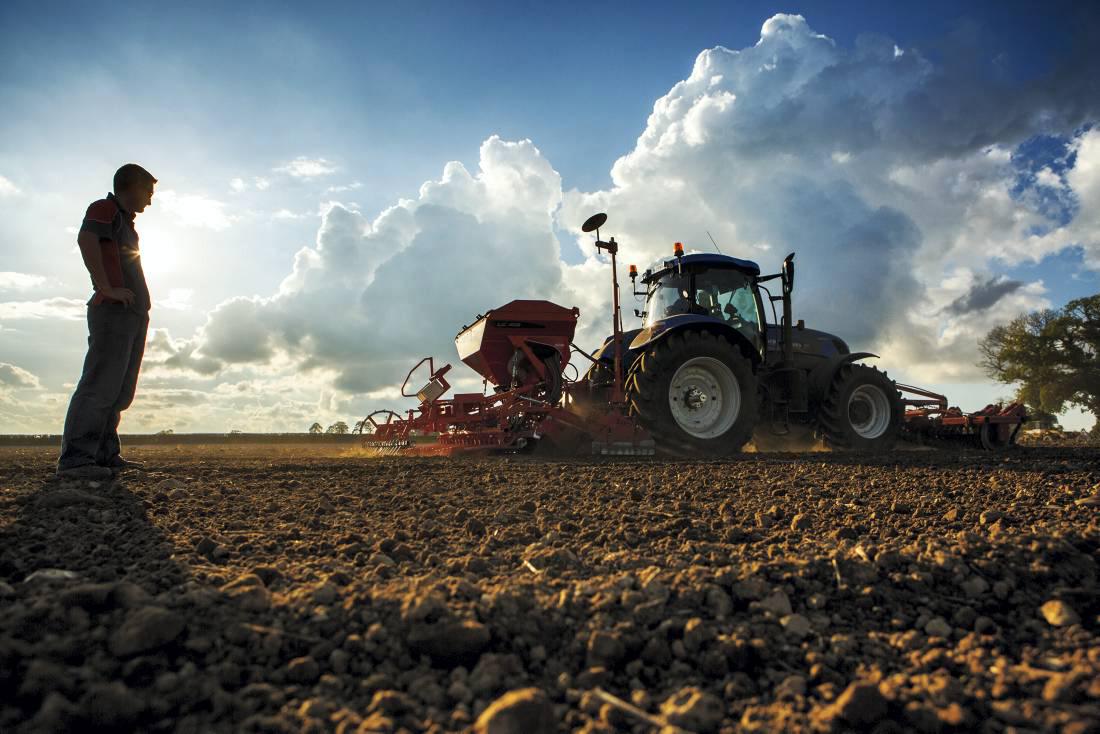The proposed changes in the budget will encourage succession/land mobility by incentivising the early transfer of land or the use of land by active farmers. An active farmer is defined in the budget summary as a person who spends not less than 50% of their time farming the land.
INCOME TAX
Major changes to leased land exemption: There are wide-ranging favourable changes to the value and qualifying conditions of this valuable income tax exemption. The changes in the income which may qualify are detailed in Table 1:
Tax planning: Review your leases to examine if entering a new lease would be beneficial.
Income averaging increased to five years: Up to 2014, a farmer could average his profits over a three-year period in order to cushion the impact of fluctuating profits. From 2015, there are two important favourable changes:
The averaging period is being increased from three years to five years. The unavailability of income averaging to a farmer/spouse carrying on another self-employed trade will be abolished from 2015 where that trade arises from on-farm diversification e.g. artisan food processing, contracting etc.Tax planning: Sit down with your Accountant and review the revised qualifying conditions.
COMPANY TAXES
12.5% company tax rate to remain: The Minister said any alteration to the 12.5% tax rate never was and never will be up for discussion. He said it is settled policy and it will not change.
Leased land deal-breaker removed: A farmer leasing land to a limited company carrying on a farming business will now qualify for the leased farmland income tax exemption where that lease is for a period of at least five years.
Tax planning: If the non-availability of the leased land income tax exemption was a deal-breaker on the formation of a limited company – review your strategy. If you are leasing land, farming in a limited company will now qualify you for the leased income tax exemption.
CAPITAL GAINS TAX
Capital gains tax relief on leased land: This is a welcomed change. Capital gains tax is a tax on the person disposing of property. Where a farmer is retiring, there is a very valuable capital gains tax retirement relief. This relief is being amended so that, subject to other conditions, land that has been leased for up to 25 years in total (increased from 15) ending with the disposal, will qualify for the relief.
Tax planning: Re-examine your farm transfer plan as the increase in the leasing period may now entitle you to this valuable relief.
Capital gains tax retirement relief and conacre: For sale or transfer of land outside the family, the special €750,000 capital gains tax retirement relief (€500,000 for disposals made by farmers age 66 years and over) is being extended to land currently let under conacre arrangements and where the disposal is on or before 31 December 2016 and also to disposals of land which, before 31 December 2016, is instead leased out for a minimum of five years to a maximum of 25 years ending with the disposal.
Tax planning: If you plan on selling land or transferring it to a non family member, you may now qualify for a €750,000 (€500,000 if over 66 years of age) special capital gains tax relief.
Farm restructuring/consolidation relief: The qualifying conditions have been changed in Budget 2015 as follows:
Up to the budget, the initial sale or purchase transaction must have occurred within the period 1 January 2013 to 31 December 2015. This period is now extended to 31 December 2016. The sale and purchase of the land parcels must occur within 24 months of each other. The qualifying conditions are being amended to enable whole farm replacement to qualify. Prior to the budget, the relief only applied to consolidation of fragmented holdings but not the full farm.Tax planning: As a result of the budget, you may now qualify for this valuable relief and if you are in the process of or are planning to carry out farm restructuring/consolidation, build this relief into your plan.
GIFT &
INHERITANCE TAX
Changes to agricultural relief qualifying conditions: Where a farmer receives agricultural property, the market value of the agricultural property may be reduced by 90%. This is a valuable relief. Currently, neither the transferor nor the transferee needs be farming in order to qualify for the relief. From 1 January 2015, and subject to other conditions to be published in the Finance Bill, the relief will be available only in respect of agricultural property gifted to or inherited by active farmers and to individuals who are not active farmers but who lease out the property on a long-term basis for agricultural use to such farmers.
Tax planning: Review your will and re-examine your succession plan.
80% windfall tax to be abolished: Introduced in 2009, the windfall tax applied an 80% rate of tax to land disposals or land development where those profits or gains were attributable to a planning decision by a planning authority. With effect from 1 January 2015, the windfall tax is being abolished.
Tax planning: If you have land which was zoned for development, it will not, on disposals on or after 1st January 2015, be subject to the 80% Windfall Tax but to the normal 33% Capital Gains Tax rules.
STAMP DUTY
Stamp duty on agricultural leases: Agricultural leases between five and 35 years in duration to active farmers will be exempt from stamp duty.
Related party transfer relief: This relief allows a 50% reduction in the stamp duty rate (2%) applying to the transfer of non-residential property between related persons. The impact of the relief is to reduce the stamp duty rate from 2% to 1% on land transfers occurring up to 31 December 2014.
The Budget extends this period for three years to 31 December 2017 where the transferor is 65 years or under and the transferee is an active farmer.
Tax planning: If you are contemplating transferring land to a related person, then you can avail of an uncomplicated new stamp duty relief if the transfer takes place before 31 December.
The proposed changes in the budget will encourage succession/land mobility by incentivising the early transfer of land or the use of land by active farmers. An active farmer is defined in the budget summary as a person who spends not less than 50% of their time farming the land.
INCOME TAX
Major changes to leased land exemption: There are wide-ranging favourable changes to the value and qualifying conditions of this valuable income tax exemption. The changes in the income which may qualify are detailed in Table 1:
Tax planning: Review your leases to examine if entering a new lease would be beneficial.
Income averaging increased to five years: Up to 2014, a farmer could average his profits over a three-year period in order to cushion the impact of fluctuating profits. From 2015, there are two important favourable changes:
The averaging period is being increased from three years to five years. The unavailability of income averaging to a farmer/spouse carrying on another self-employed trade will be abolished from 2015 where that trade arises from on-farm diversification e.g. artisan food processing, contracting etc.Tax planning: Sit down with your Accountant and review the revised qualifying conditions.
COMPANY TAXES
12.5% company tax rate to remain: The Minister said any alteration to the 12.5% tax rate never was and never will be up for discussion. He said it is settled policy and it will not change.
Leased land deal-breaker removed: A farmer leasing land to a limited company carrying on a farming business will now qualify for the leased farmland income tax exemption where that lease is for a period of at least five years.
Tax planning: If the non-availability of the leased land income tax exemption was a deal-breaker on the formation of a limited company – review your strategy. If you are leasing land, farming in a limited company will now qualify you for the leased income tax exemption.
CAPITAL GAINS TAX
Capital gains tax relief on leased land: This is a welcomed change. Capital gains tax is a tax on the person disposing of property. Where a farmer is retiring, there is a very valuable capital gains tax retirement relief. This relief is being amended so that, subject to other conditions, land that has been leased for up to 25 years in total (increased from 15) ending with the disposal, will qualify for the relief.
Tax planning: Re-examine your farm transfer plan as the increase in the leasing period may now entitle you to this valuable relief.
Capital gains tax retirement relief and conacre: For sale or transfer of land outside the family, the special €750,000 capital gains tax retirement relief (€500,000 for disposals made by farmers age 66 years and over) is being extended to land currently let under conacre arrangements and where the disposal is on or before 31 December 2016 and also to disposals of land which, before 31 December 2016, is instead leased out for a minimum of five years to a maximum of 25 years ending with the disposal.
Tax planning: If you plan on selling land or transferring it to a non family member, you may now qualify for a €750,000 (€500,000 if over 66 years of age) special capital gains tax relief.
Farm restructuring/consolidation relief: The qualifying conditions have been changed in Budget 2015 as follows:
Up to the budget, the initial sale or purchase transaction must have occurred within the period 1 January 2013 to 31 December 2015. This period is now extended to 31 December 2016. The sale and purchase of the land parcels must occur within 24 months of each other. The qualifying conditions are being amended to enable whole farm replacement to qualify. Prior to the budget, the relief only applied to consolidation of fragmented holdings but not the full farm.Tax planning: As a result of the budget, you may now qualify for this valuable relief and if you are in the process of or are planning to carry out farm restructuring/consolidation, build this relief into your plan.
GIFT &
INHERITANCE TAX
Changes to agricultural relief qualifying conditions: Where a farmer receives agricultural property, the market value of the agricultural property may be reduced by 90%. This is a valuable relief. Currently, neither the transferor nor the transferee needs be farming in order to qualify for the relief. From 1 January 2015, and subject to other conditions to be published in the Finance Bill, the relief will be available only in respect of agricultural property gifted to or inherited by active farmers and to individuals who are not active farmers but who lease out the property on a long-term basis for agricultural use to such farmers.
Tax planning: Review your will and re-examine your succession plan.
80% windfall tax to be abolished: Introduced in 2009, the windfall tax applied an 80% rate of tax to land disposals or land development where those profits or gains were attributable to a planning decision by a planning authority. With effect from 1 January 2015, the windfall tax is being abolished.
Tax planning: If you have land which was zoned for development, it will not, on disposals on or after 1st January 2015, be subject to the 80% Windfall Tax but to the normal 33% Capital Gains Tax rules.
STAMP DUTY
Stamp duty on agricultural leases: Agricultural leases between five and 35 years in duration to active farmers will be exempt from stamp duty.
Related party transfer relief: This relief allows a 50% reduction in the stamp duty rate (2%) applying to the transfer of non-residential property between related persons. The impact of the relief is to reduce the stamp duty rate from 2% to 1% on land transfers occurring up to 31 December 2014.
The Budget extends this period for three years to 31 December 2017 where the transferor is 65 years or under and the transferee is an active farmer.
Tax planning: If you are contemplating transferring land to a related person, then you can avail of an uncomplicated new stamp duty relief if the transfer takes place before 31 December.








SHARING OPTIONS